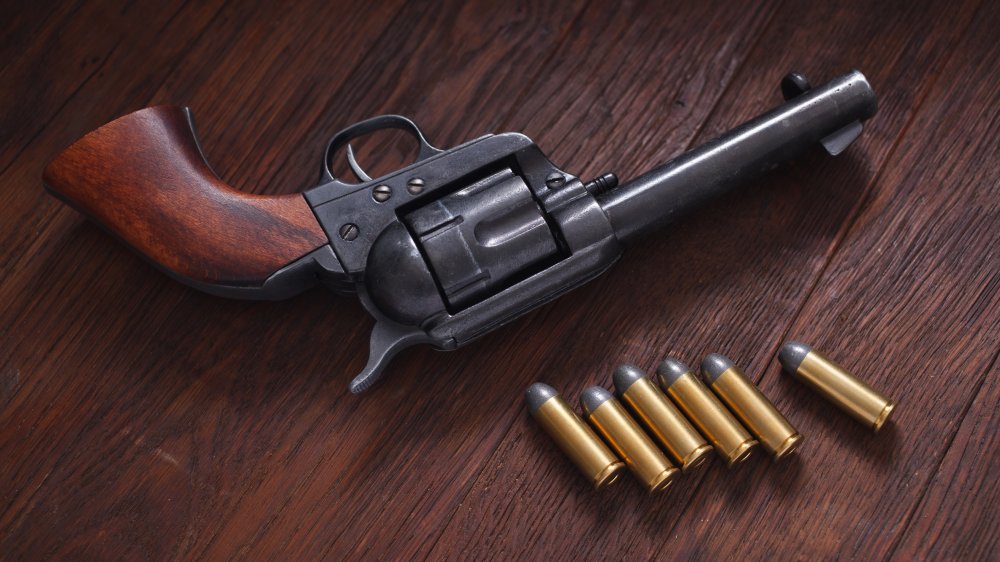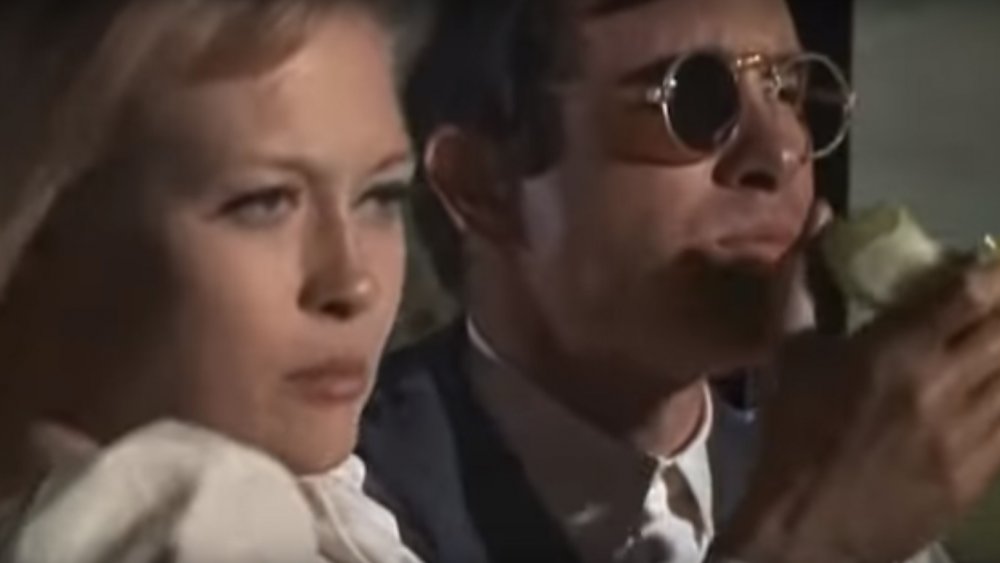Frank Hamer: The Truth About The Man Who Took Down Bonnie And Clyde
The story of Bonnie and Clyde is one that benefitted a lot from a Hollywood spin. The 1967 Warren Beatty-Faye Dunaway vehicle (because it involved a lot of cars. Also, it was a movie) painted the couple as fairly glamorous and the lawman who took them down as a vengeful idiot. The reality is that the criminals were two extremely poor kids from Texas, with few if any opportunities, including education who were trying to get by in very hard economic times.
Does it justify what went down? Not in the least, especially when you factor in the 10 people Clyde personally killed, not including the body count amassed by other members of the Barrow gang. Armed robbery and car theft were their specialties, but they didn't hesitate to shoot their way through perceived opposition, even police officers, in cold blood. One of their victims was spending his first day on the job as a motorcycle patrolman, and was set to be married eleven days later. His fiancé wore her wedding dress to his funeral.
As for the cop who finished off Clyde and Bonnie? Frank Hamer is frequently referred to as the greatest Texas Ranger who ever lived. And that was before Bonnie and Clyde.
The first time we hear about Frank Hamer killing a man, he was but 16. He was sharecropping. His employer tried to hire him to kill someone; Hamer refused. The employer unloaded a shotgun into Frank, but not unlike Virgil Earp, Hamer survived, though without being crippled. He recovered, confronted the man, both went for the guns — Hamer rode away.
Bonnie and Clyde
Hamer was a product of geography and time. Born in 1884, he grew up poor, son of a blacksmith. At various points he was a cowboy, a sharecropper, and then volunteered for a posse chasing a criminal. He was well over six feet tall, all muscle — he'd worked in the smithy with his father — self-reliant, self-confident, and had an inherent sense of justice that found him admiring and appreciating stories of Native Americans. At 22 he became a Ranger and served honorably and quietly — except for the gunfire, of course. He was in more than 50 shootouts and had either killed or been part of killing more than 20 criminals. He'd been shot more than 20 times himself. He named his .45 Colt "Old Lucky."
When the Rangers were disbanded for a brief time, Hamer joined the Texas highway patrol, and it was during that period that he tracked down, found, and led the posse that fired 167 rounds, not counting buckshot, effectively ending the two-year trail of crime committed by Parker and Barrow.
Hamer immediately became a national hero but refused to capitalize on it. He turned down $10,000 to help write a book about the case.
As for that movie — Hamer's family sued the producers in 1968 and got a settlement out of court.

